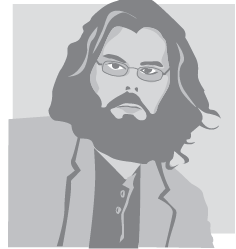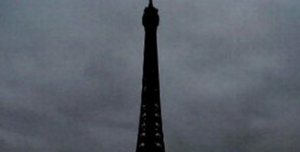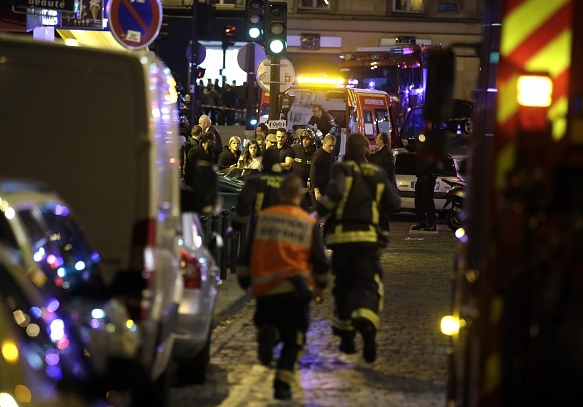 aNewDomain — The so-called Islamic State has claimed responsibility for the attacks on Paris that have left, at the time of this writing, at least 127 people dead.
aNewDomain — The so-called Islamic State has claimed responsibility for the attacks on Paris that have left, at the time of this writing, at least 127 people dead.
France has not been the friendliest of nations to the Muslim world, but neither the most offensive.
Clashes between immigrant and native culture are somewhat inevitable. Without immigration, the nation would begin to stagnate and then to slowly shrink. Why? Because the educated and professional class of French people are not producing enough new babies to replace themselves in the population.
At the same time, a strong sense of national identity as well as a history of nationalism necessarily cause some amount of strife as non-native French try to assimilate or be accommodated.
None of this has anything at all to do with Friday’s attacks.
Why so bland and even boring a place as France to stage these acts of terror?
Why Paris, of all places?
 Paris is easily accessible by land. There are not oceans to cross and the borders are porous. So if ISIS can strike at France, deep in the heart of Europe, then it can really attack anywhere and at any time. ISIS sends a message here.
Paris is easily accessible by land. There are not oceans to cross and the borders are porous. So if ISIS can strike at France, deep in the heart of Europe, then it can really attack anywhere and at any time. ISIS sends a message here.
Also, Paris isn’t only a French city. It is an international city.
All of the places the terrorists struck are heavily populated by tourists. A football game between Germany and France, with heavy international attendance. A music concert featuring an American rock band. City streets and bars where tourists congregate.
To strike at Paris is to strike at the world
The same was true of the World Trade Center attacks. When those buildings fell, they killed people from all over the world. While the heaviest concentration of citizens were Americans, everybody felt that pain.
Make no mistake: These are people who want war. They are hitting the beehive with a stick knowing the consequences of doing so, and they are doing it planfully. There are no accidents here.
Now, whether these militants believe that they can win a war with the whole world, that they can melt back into the population and disappear at need, or that their deaths are of no consequence because of their holy mission is beside the point. None of that matters.
What really matters here is that they are trying to lure us into a no-win scenario.
A conventional war on the ground in Syria or Iraq is slow suicide. You can’t tell enemy from friend there. They aren’t going to dig trenches and line up nicely in them like in World War I. They’re going to blend in and bleed us in an asymmetric war. It is what they have always done. We could just wipe those nations clean off the map with a nuclear strike, but that would be morally indefensible as well as ineffective. Not everyone there is an enemy combatant, and not every enemy combatant is there.
This is a disease for which amputation is no cure. It has already spread too far.
In the meantime, we grow more frightened. We grow paranoid, even. France loses tourism money because the streets and cafes are not safe. People stay home rather than travel or go out. All our economies shrink. ISIS gains in fame and repute.
And if we don’t retalitate, we appear to be cowards.
Why don’t moderate Muslim states intercede?
This has become a popular question. And why don’t moderate Muslim states intercede in the ISIS problem?
Why doesn’t Jordan bomb them back to the Stone Age? Why doesn’t Saudi Arabia march over them?
It might be because Saudi Arabia isn’t as moderate as we’d like to give it credit for.
But it probably is that they’re smarter than us, too. They know, the Persian Gulf states all know, that such an action is futile.
They would be led into increasingly morally ambiguous sorts of actions, unable to tell friend from foe, suffering constant terror attacks back home. Better to let them do whatever they mean to do and stay out of it.
So what do we do?
In the modern world, there aren’t easy solutions to these sorts of problems. We have to take a step back. When someone punches you in the face you take immediate steps to be safe. When terrorists try to embroil you in a pointless, bleeding war, you take more care.
Something like climate change has far-reaching impacts with systemic causes and tipping points and no easy solutions. It is complicated further by intentional campaigns of misinformation, profit motives and international interests.
Something like ISIS can be seen in similar lights. It is easy to point at the people in the training camps, or holding the machetes. It is harder to understand such things in systemic terms.
Where does this brand if Islam come from? Certainly the Muslim faith itself does not make people murderous. But this arises out of economic disparity, political disenfranchisement and international abuses. From colonial history that impoverished whole regions while enriching minorities – the wealthy capitalist classes of imperialist nations – all done under the banner of Christian faith.
You can’t just ignore this problem and hope it will go away. Neither can you solve it with bullets and bombs. That’s what they want you to try.
Any solution to such problems needs to be systemic.
At home, we must begin with our own racism. We live in a place where 14% of the population are kept in these same conditions: of poverty, political disenfranchisement, of devalued identities. We post guards at the borders and order them to kill immigrants, a kind of rabid xenophobia of a kind we think more at home in the Middle East. And we fly drones unapologetically over sovereign nations to assassinate their citizens, killing civilians and blowing up weddings. We cry for more and more military power, writing blank checks to the Pentagon while we decry violence in the world. We protest beheadings in the Middle East while executing our own citizens with sodium pentothol.
In other words, this isn’t a Muslim problem, centered in the Arab states, with clean, military solutions. The beginning is here at home.
You say we should become the change we want to see in the world but what you mean by that is don’t try to hold government and corporations accountable for the problems they have created: Just work harder, go into debt for your degree, try to please the masters.
But the beginnings of change really are at home. We can’t understand the racist belligerence of others until we have learned to confront it in ourselves. To learn, in short that they are not others.
Then – and only then – can we begin the necessary systemic work. Of lifting people out of poverty, working towards financial equity, repaying and repairing nations after our long legacies of imperialism.
For aNewDomain, I’m Jason Dias.













